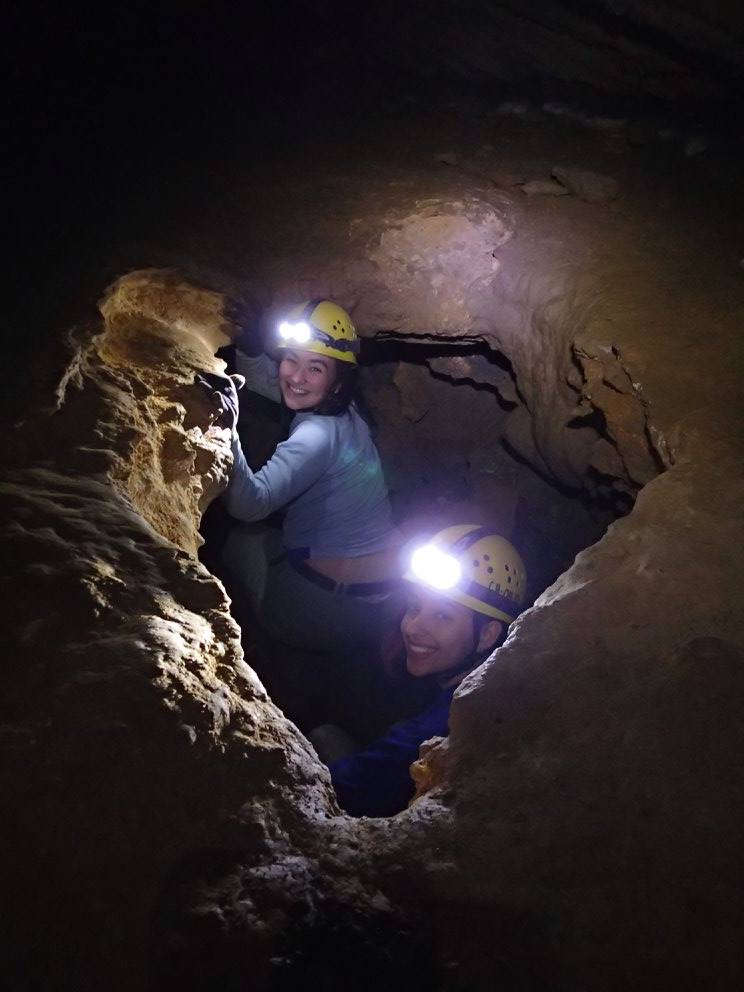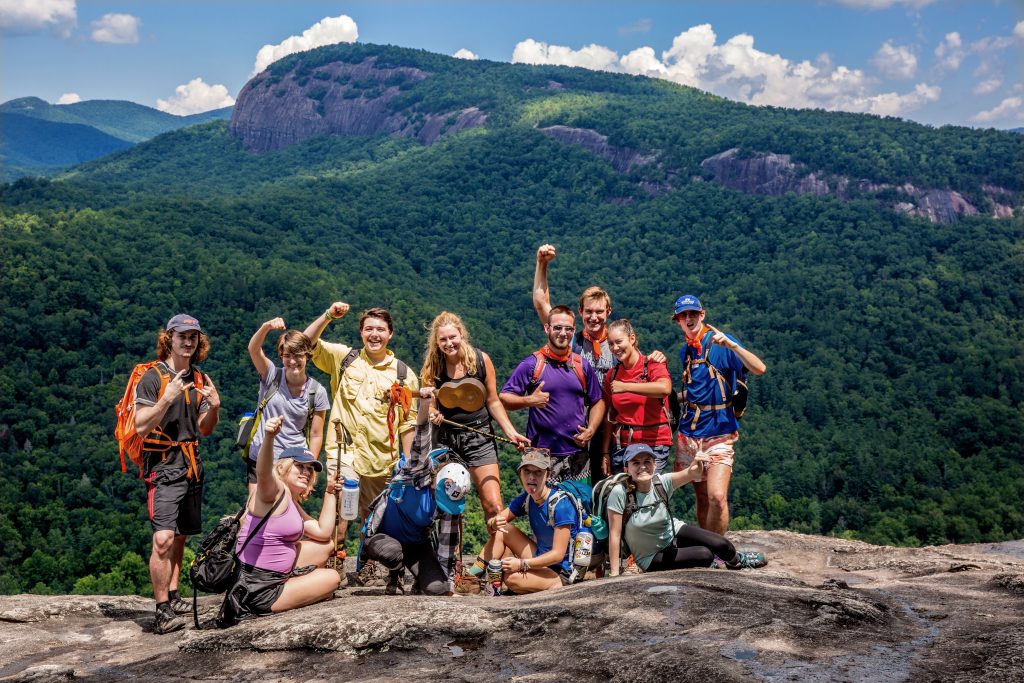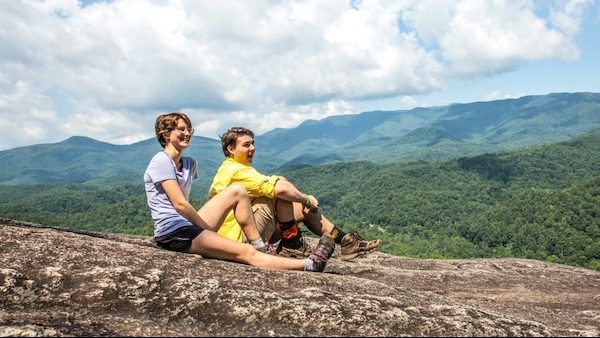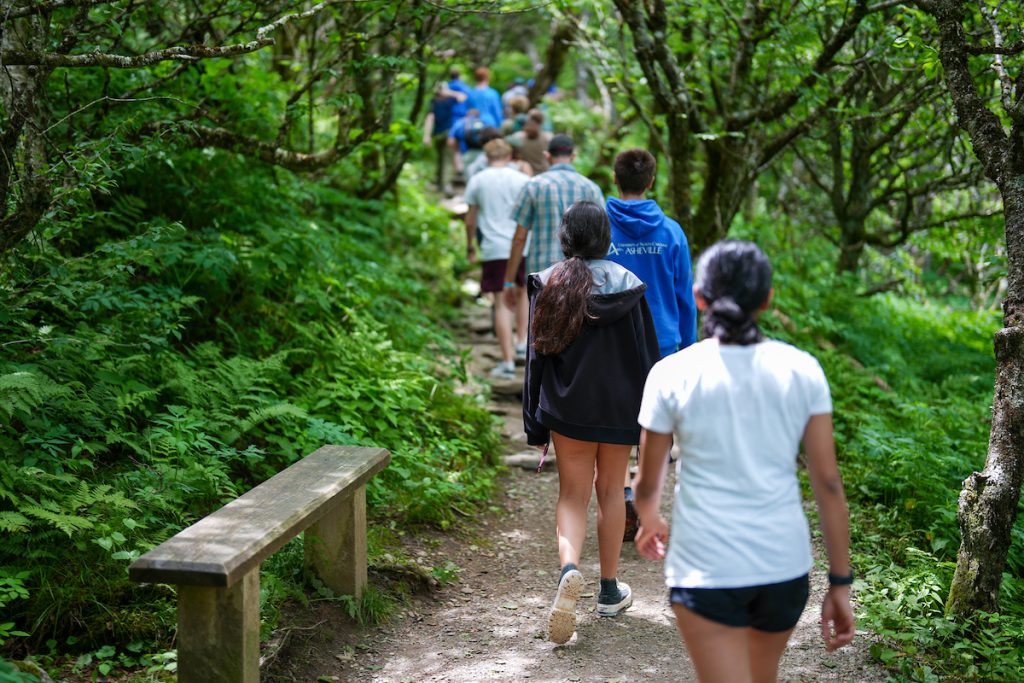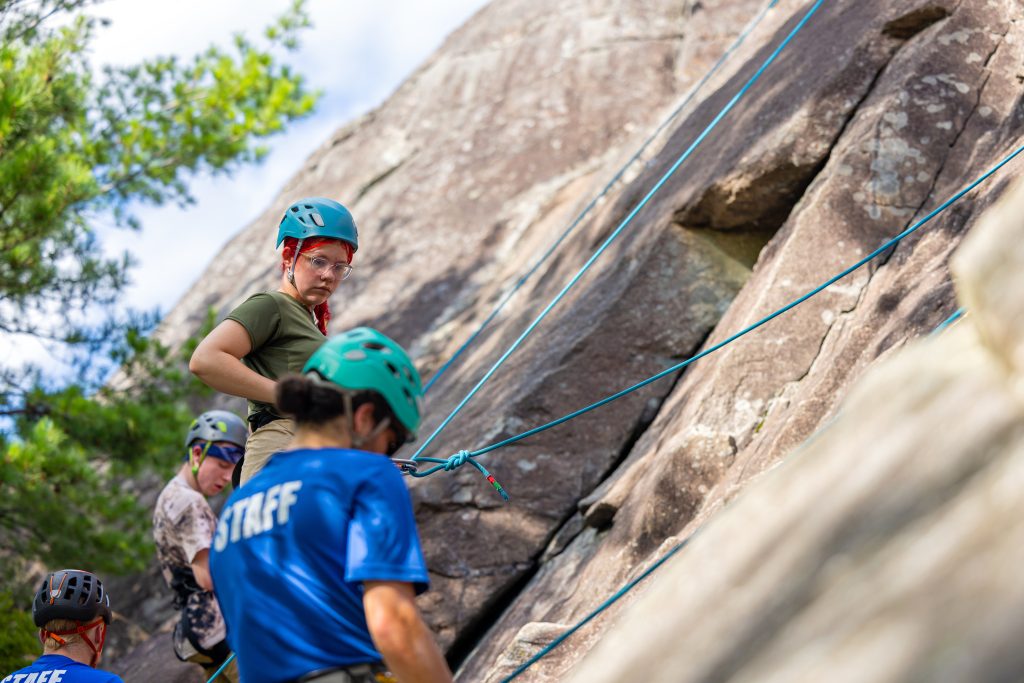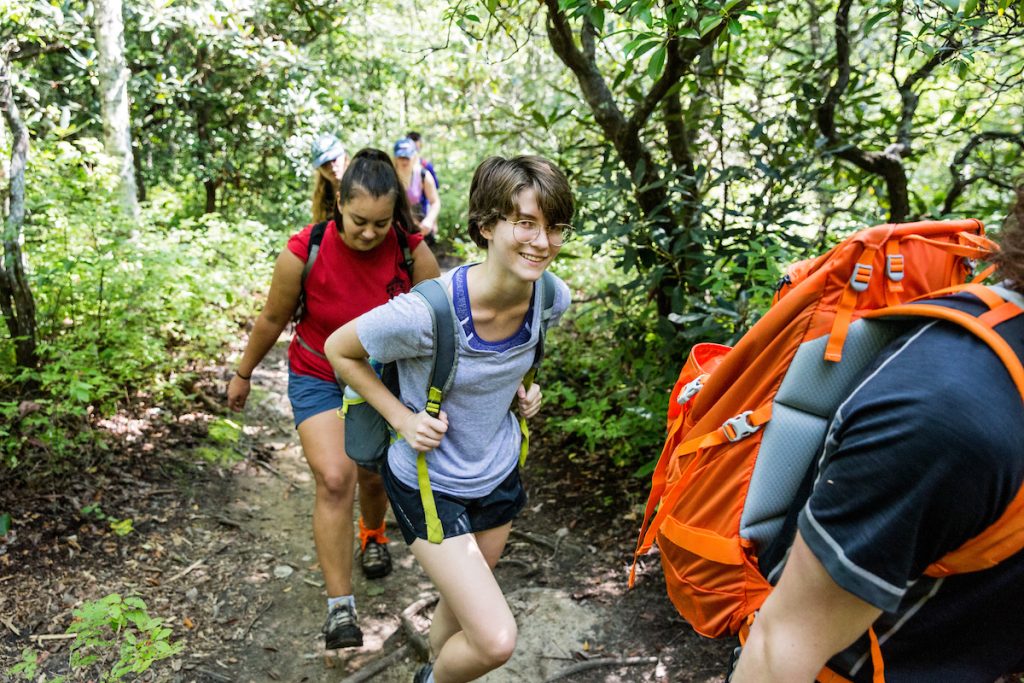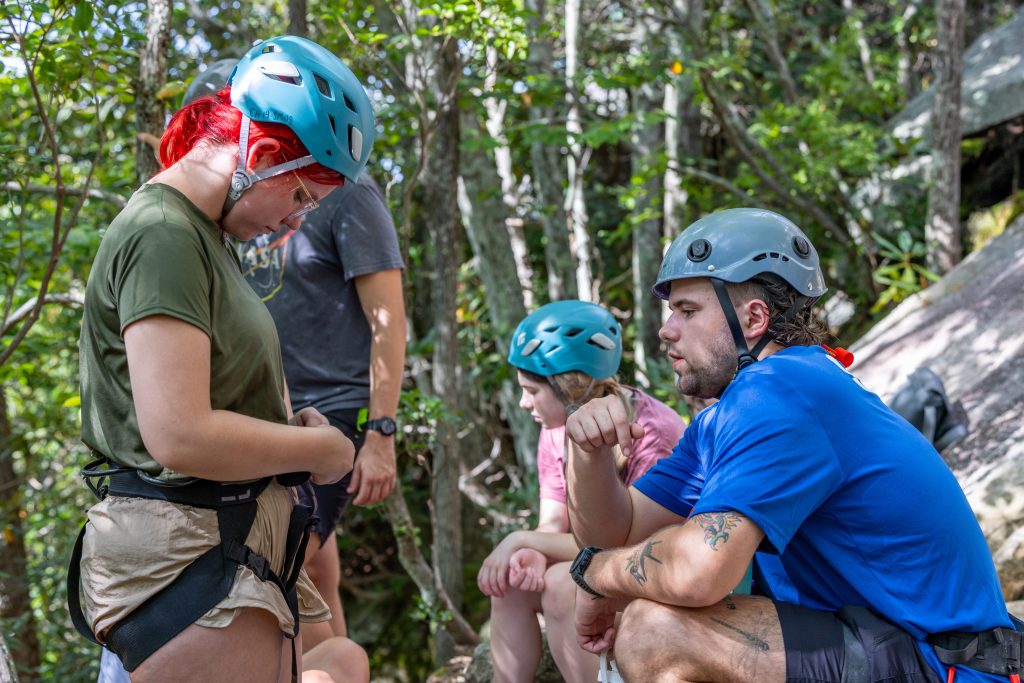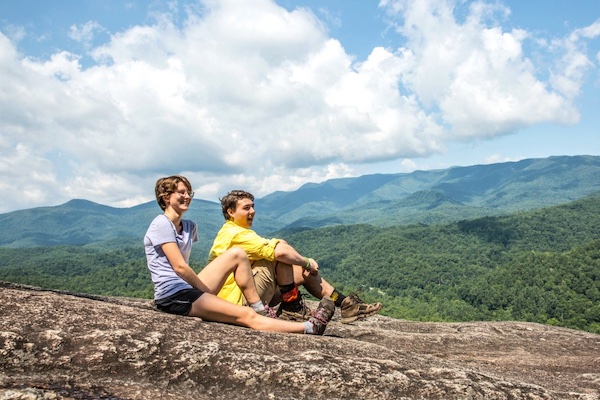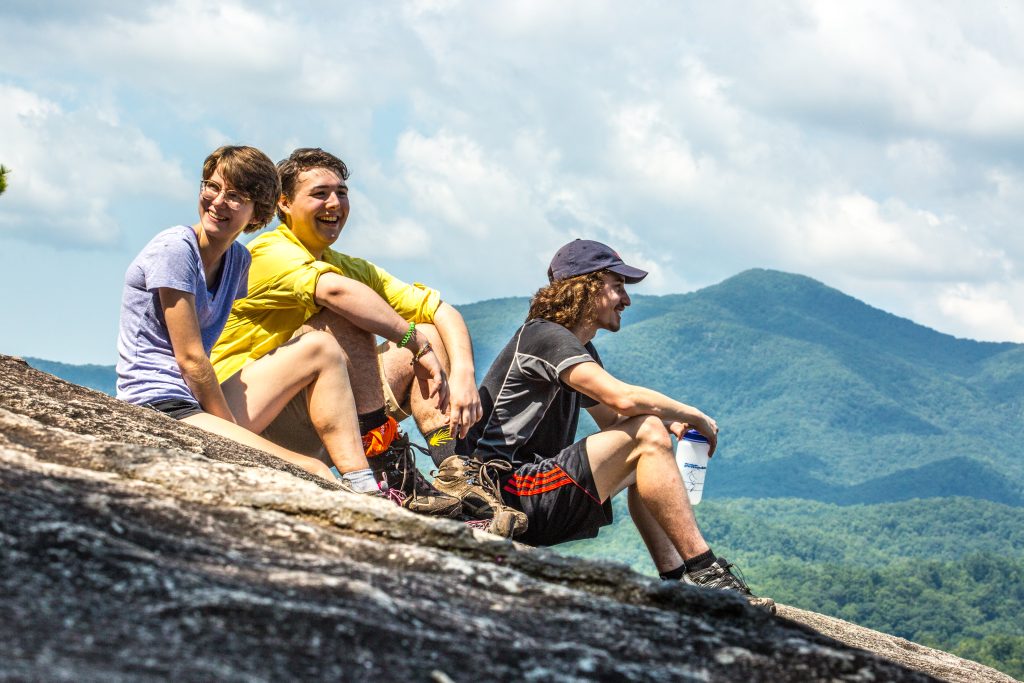
Geology & Adventure June 21 – 26
Learn about the geology of the Southern Appalachians while hiking to scenic landmarks. Practice field-based learning while rock climbing and rappelling on the beautiful granite bodies of western North Carolina. Experience the geology of caving systems while spelunking. Enjoy time outdoors, build lifelong friendships, participate in adventure experiences, and see what it is like to be a geologist for a week!
Registration opens december 2025:
- June 21 – 26, 2026
- $1,840.00
- Pre-College Programs are open to rising high school sophomores, juniors, and seniors.
- Price includes lodging, meals, all course materials, activities, and excursions
- A $500 deposit is required at the time of registration, with the remaining balance due by May 1, 2026. After that date, full payment is required at registration. Click here to see our cancellation policy.
- Students reside in campus residence hall and dine in campus dining hall
- Enrollment is open until spaces are filled
- Registration is through the Camp Doc platform. Detailed registration instructions can be found here.

- Geologic Background: Geologic history of the Southern Appalachians, landslides, earthquakes, cave systems
- Field Skills: Basic rock and mineral identification, navigation and maps, making field observations to understand the geologic history
- Adventure/Outdoor Skills: Leave-no-trace ethics and outdoor stewardship, hiking and group management, rock climbing and rappelling skills, spelunking skills
- Social topics: Building positive community, developing a sense of place/place attachment, reflecting personally on their role in and interactions with the natural world

- Hiking
- Rock climbing and rappelling
- Spelunking skills.
- Basic rock and mineral identification
- Navigation and map reading
- Field observations to understand the geologic history
Topics and schedules are subject to change
Sample Schedule:
Morning
- 8 a.m. – Breakfast
- 9 a.m. – Rock and mineral identification
- 12 p.m. – Lunch & free time
Afternoon
- 1 p.m. – Rock climbing and rappelling
Evening
- 5 p.m. – Dinner
- 6:30 p.m. – Activities / Recreation / Free Time
Options could include: sand volleyball, Asheville Tourists game, game night, movie - 11 p.m. – Lights out
Topics and schedules are subject to change
Meet Your Faculty

Dr. Jackie Langille teaches courses in Structural and Field Geology, Geographic Information Systems [GIS], Physical Geology, Environmental Geology, and Field Geology. She is particularly interested in deformation at depth in the Earth’s crust and at the surface, as this information is critical for understanding regional tectonics. She incorporates geologic mapping of bedrock and structures, geomorphic field mapping and modeling, GIS, kinematic analysis, microstructural analysis, metamorphic petrology, and geochronology to evaluate the development and evolution of fault systems and shear zones in the Himalaya, the Appalachians, and the Walker Lane in Nevada.
Questions? Please contact us at precollege@unca.edu.

